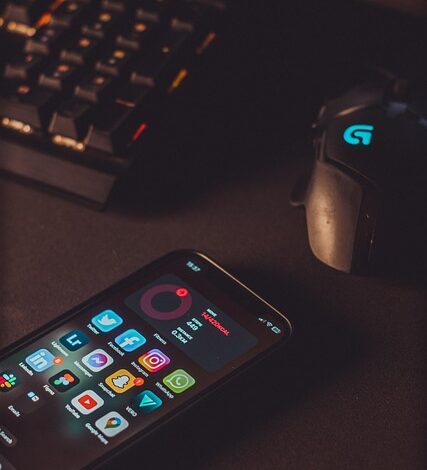How to Ace a Phone Interview & Move to the Next Round

Phone interviews are often the first step in the hiring process, serving as a screening tool for employers to assess whether candidates are a good fit for the role. While they may seem less formal than in-person or video interviews, phone interviews are just as important and require careful preparation. Acing this stage can set the tone for your entire candidacy and help you secure a spot in the next round of interviews.
In this guide, we’ll walk you through everything you need to know to excel in a phone interview and increase your chances of moving forward in the hiring process.
1. Why Are Phone Interviews Important?
Phone interviews are typically used by employers to narrow down the pool of candidates before inviting a select few for in-person or virtual interviews. They are designed to assess:
- Your qualifications : Do you have the skills and experience required for the role?
- Your communication skills : Can you articulate your thoughts clearly and professionally?
- Your interest in the position : Are you genuinely excited about the opportunity?
While phone interviews may seem informal, they are a critical step in the hiring process. Failing to impress during this stage can eliminate you from consideration, no matter how qualified you are. On the other hand, excelling in a phone interview can give you a competitive edge and pave the way for future rounds.
2. Preparation: The Key to Success
Proper preparation is the foundation of a successful phone interview. Here’s how to get ready:
Research the Company and Role
Before the interview, take time to learn about the company’s mission, values, products, and recent news. Visit their website, read employee reviews on platforms like Glassdoor, and follow them on social media. Understanding the company culture and goals will help you tailor your responses and demonstrate genuine interest.
Understand the Job Description
Carefully review the job description and identify the key responsibilities and qualifications. Think about how your skills and experiences align with the role. Be prepared to provide specific examples that showcase your ability to meet the employer’s needs.
Prepare Your Answers to Common Questions
Practice answering common phone interview questions, such as:
- “Tell me about yourself.”
- “Why are you interested in this role?”
- “What are your strengths and weaknesses?”
- “Can you describe a challenge you faced at work and how you overcame it?”
Use the STAR method (Situation, Task, Action, Result) to structure your responses to behavioral questions. This ensures your answers are clear, concise, and impactful.
3. Setting Up for Success
The right environment and tools can make a big difference in how well you perform during a phone interview.
Choose the Right Environment
Find a quiet, distraction-free space where you won’t be interrupted. Avoid public places or areas with background noise. If you live with others, let them know you’ll be on an important call so they can respect your privacy.
Test Your Technology
Ensure your phone is fully charged or plugged in, and check that you have a strong signal. If using a landline, test it beforehand to confirm it’s working properly. For video-based phone interviews (e.g., Zoom), test your internet connection, microphone, and camera.
Have Your Materials Ready
Gather all necessary materials, including:
- A copy of your resume.
- The job description.
- Notes on the company and role.
- A list of questions to ask the interviewer.
- A pen and paper for taking notes.
Having these items within reach will help you stay organized and confident.
4. During the Interview: Tips for Success
Once the interview begins, focus on making a positive impression.
Start Strong with a Professional Greeting
Answer the call promptly and greet the interviewer warmly. For example, “Good morning/afternoon, this is [Your Name]. Thank you for taking the time to speak with me today.”
Speak Clearly and Confidently
Enunciate your words and maintain a steady pace. Smile while speaking—it comes across in your tone and makes you sound more approachable. Avoid filler words like “um” or “like,” and pause briefly if you need a moment to think.
Listen Carefully and Take Notes
Pay close attention to the interviewer’s questions and comments. Jot down key points to refer back to later, especially if they mention something specific about the role or company.
Ask Insightful Questions
At the end of the interview, the interviewer will likely ask if you have any questions. Use this opportunity to show your enthusiasm and curiosity. Examples include:
- “What does success look like in this role?”
- “Can you tell me more about the team I’d be working with?”
- “Are there opportunities for professional development?”
5. Common Phone Interview Questions and How to Answer Them
Here are some frequently asked phone interview questions and strategies for answering them effectively:
- “Tell me about yourself.”
- Focus on your professional background and highlight achievements relevant to the role. Keep it concise (1-2 minutes).
- “Why are you interested in this position?”
- Explain why the role excites you and how it aligns with your career goals. Mention specific aspects of the company that appeal to you.
- “What are your greatest strengths?”
- Choose strengths that directly relate to the job and provide examples to support your claims.
- “What is your biggest weakness?”
- Be honest but frame your weakness as an area you’re actively improving. For instance, “I used to struggle with public speaking, but I’ve taken courses and now feel much more confident.”
- “Describe a time when you faced a challenge at work.”
- Use the STAR method to share a story that demonstrates problem-solving and resilience.
6. Post-Interview Follow-Up
After the interview, send a personalized thank-you email within 24 hours. Express gratitude for the opportunity, reiterate your interest in the role, and briefly highlight why you’re a great fit. For example:
“Thank you for taking the time to speak with me today about the [Job Title] position. I enjoyed learning more about [specific detail about the company/role], and I’m excited about the possibility of contributing to [specific goal or project]. Please don’t hesitate to reach out if you need any additional information.”
A thoughtful follow-up leaves a lasting impression and reinforces your professionalism.



